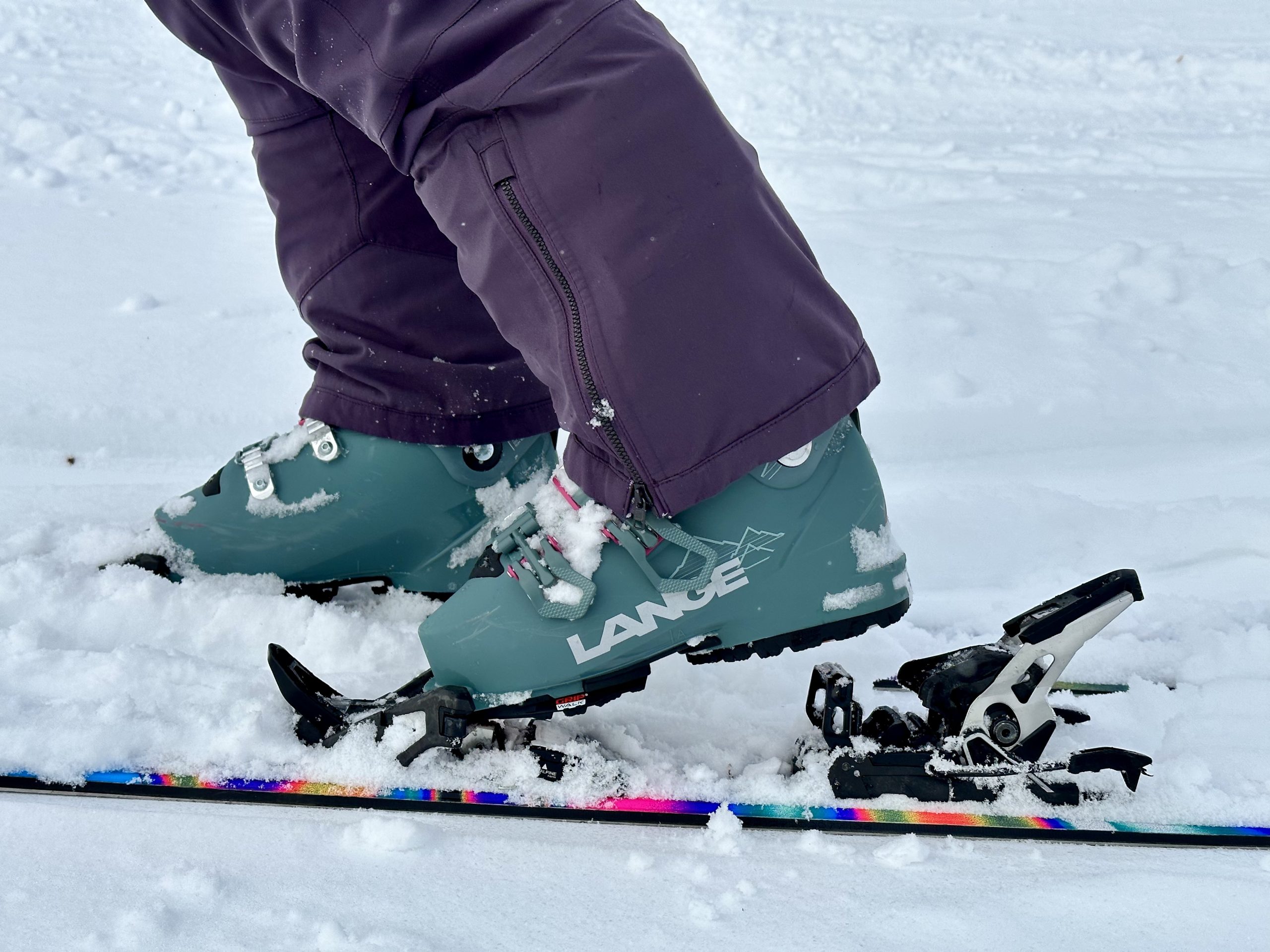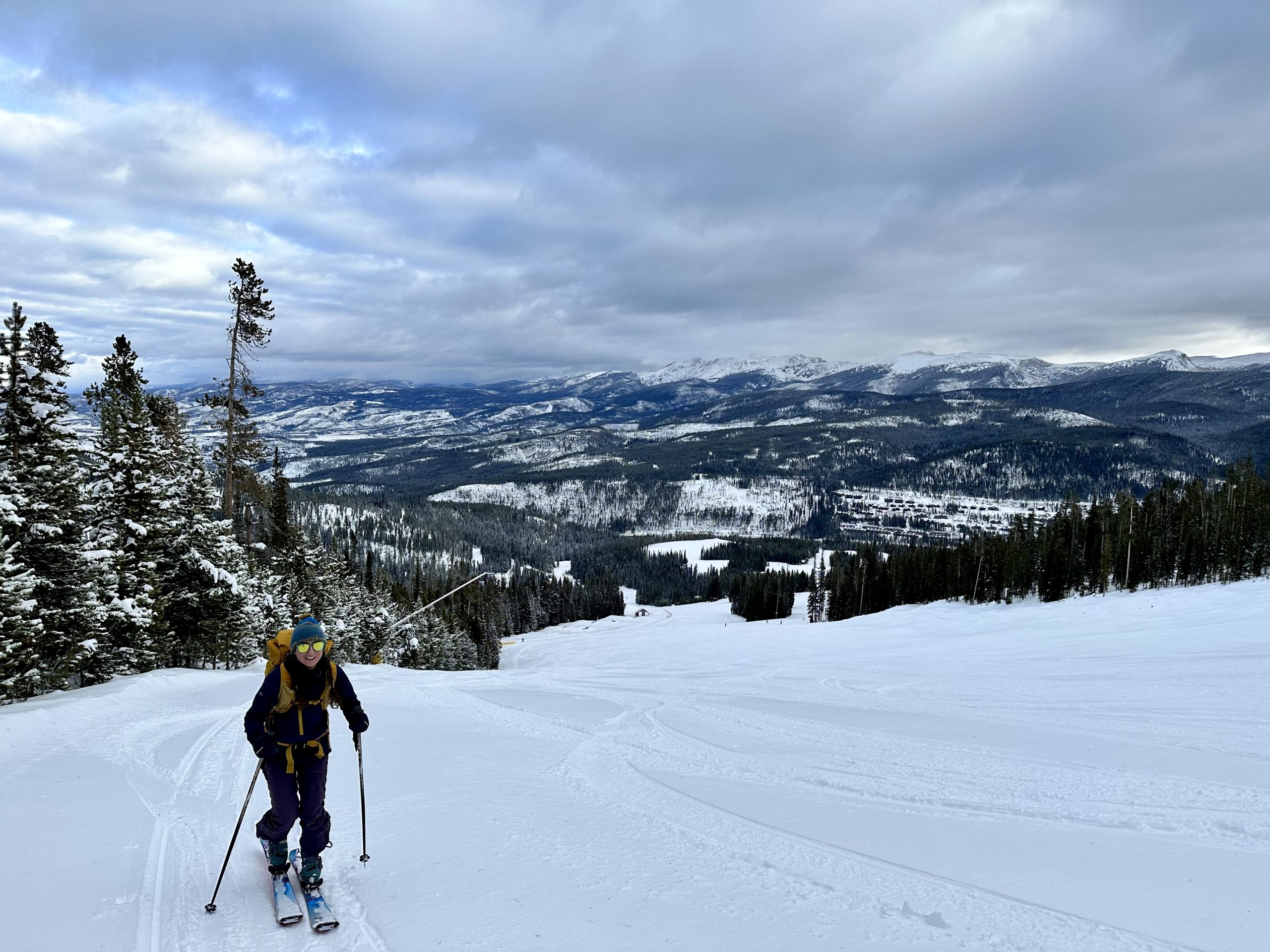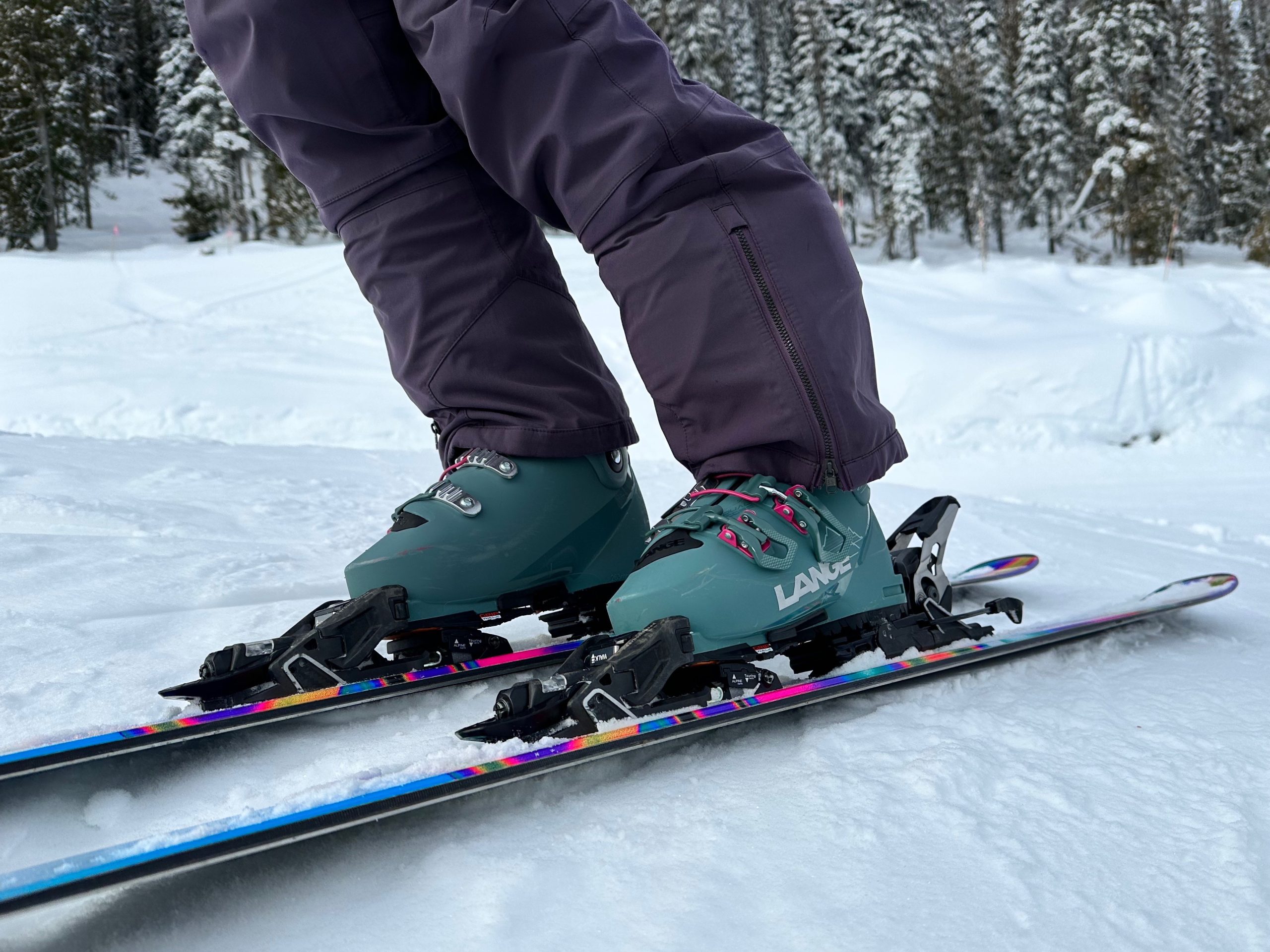
*SnowBrains carries some affiliate marketing links, which means we earn commission on sales of some products when users click through a link from the site. Our editorial content is NOT influenced by affiliate partnerships.
The uphill ski movement has exploded in popularity. Whether it’s an early morning cardio workout in resort before the crowds, chasing the perfect backcountry line, capturing an Insta sunrise, or a mid-day mental health break, there’s a constant stream of folks hiking uphill to get their outdoor fix.
From the comfort of a chairlift, we’ve watched this extension of our favorite sport grow; it’s hard not to want to be involved. So why the late start? We always felt held back by the knowledge and understanding of the tech and the capabilities each offer (there are so many types of bindings alone). Then let’s talk about the investment, an AT set-up makes alpine skiing look positively cheap. So after a lot of procrastination, we decided this was the year we would make the switch.
Where to begin: What kind of uphill skier am I going to be?
As always, I feel drawn to a single set-up that will travel, and with this in mind, I know I’ll need to compromise. Options that’ll offer technical functionality to skin uphill and get fresh tracks whilst also supporting my in-resort charging down frontside groomers and allow me to ski moguls unfiltered. With this in mind, my choice of skis, boots and bindings will all need to be burlier; they won’t be as lightweight.
There’s a wild amount of tech out there that makes this single-quiver concept closer to my reality. I feel the need to caveat that for those who choose longer touring days or multi-day ski treks, your requirements will be incredibly different. This is my current journey, one might even call it dipping a toe. I hope it’s the start of something beautiful, a lifelong love affair with touring.

After devoting a few decades to downhill skiing, I had well-worn skis with old-school downhill bindings, newish boots that I upgraded a couple of seasons ago (but were never quite right), and a load of multi-purpose ski clothes that will layer up perfectly. So it seemed the most obvious place was to get some modern-day hybrid touring boots that would allow me to skin up and charge down.
I’m still going to be a downhill skier most of the time, so hybrid boots seemed the best way forward, especially as many modern downhill bindings can actually accommodate regular downhill ski boots, as well as the beefier hybrids with GripWalk soles. This would allow me to keep my boots and have a second ski set-up if I find I need lighter, wider skis for longer touring trips.
My choice: Lange XT3 115W (MV)
When choosing boots, what’s the best approach? Why talk to your boot guy, of course, then try a few pairs for fit and size.
I went to see Mr Pete at my local store in Winter Park. We narrowed it down to a few pairs of downhill boots that feature GripWalk Alpine soles with pin binding compatibility, allowing them to crossover from regular downhill bindings to hybrid bindings like the Salomon Shift or the Marker Kingpin.

Despite being short and small framed, I have a somewhat aggressive ski style, with a narrow heel and medium to wide foot. After trying several brands, the Lange XT3 115 was the clear winner. It has a stiff 115 flex, very forgiving 100mm last, and comes in two volume options. It also comes in a 22 mondo for the first time in the 2022/23 season and weighs in at 1,607g per boot (size 24.5).
I opted for the medium volume (MV) version to fit my battery-powered boot heaters, toe socks, and modified footbed. I live in hope of a life with naturally warm feet, but know this to be a mirage. Life without heated feet would be miserable.
The boots feature GripWalk soles with tech inserts, and a walk option, making them comfortable to climb and ski downhill. The Ultralon liner seems pretty basic. It’s lightweight and does the job, and compared to the others I have previously demoed, my feet were significantly less moist at the top. I confess I rarely, if ever, use the walk function (I should add, yet!).
I’ve read reviews that talk in detail about rebound and responsiveness, and with my layman’s understanding of this, I think I’d agree. The boot feels as solid as any of my high-end downhill boots; they turn and drive my skis instantly when I ask them to. My only complaint would be that I think they could be a little snugger fit in the forefoot, but the stability they offer suits me perfectly.
I’d also concur that the 115 flex is a little on the stiffer side than I was expecting. Of course, moving across ski brands means the interpretation of flex stiffness differs considerably, and I think this 115 is on the extra stiff side, so for anyone considering, bear this in mind or opt for the 95 version. To be fair, I didn’t notice this when trying them on or whilst skiing most of the time, but when the moisture content of the snow is higher, or we’re skiing yesterday’s baked conditions, my lower legs really feel the difference.
All things considered, I’m really quite happy with my ski boots. For now, I love that they allow me to travel with just one ski set-up, and open up this new world of uphill climbing to sit alongside my addiction to downhill skiing. Some might say I get the best of both worlds.
2 thoughts on “Making the Move to Uphill Skiing: Lange XT3 115w Ski Boots”